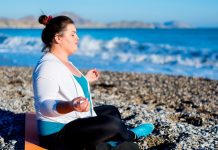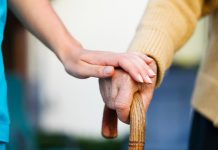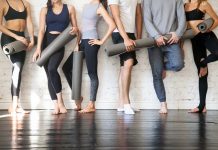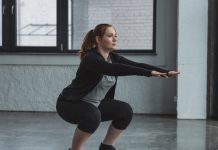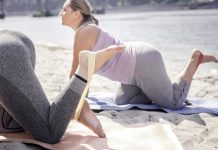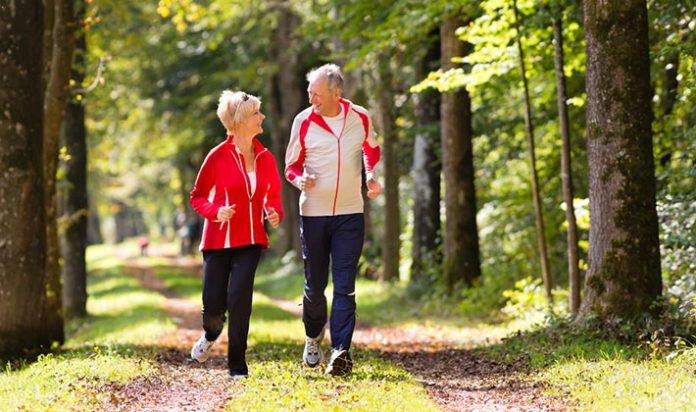It’s important to get a healthy amount of exercise no matter what your age. And as you get older, it becomes more important than ever. We’re going to discuss the top four exercises that everybody should be doing (or at least trying to do) below. Once you learn these secrets to exercising as you get older, you’ll be the fittest person in your neighborhood!
#1: Full Range of Motion Exercises
Any exercise which works out a large muscle group or involves flexing/contracting several muscles at the same time is called a full range of motion exercise. They are sometimes also called “compound exercises” for short. These movements are important because they strengthen your muscles and your joints at the same time. They also work your muscles in ways that are the best for maintaining balance and flexibility, which are some of the biggest challenges for people as they get older. Consider adding any or all of the following exercises to your workout if you want to get more full range of motion work into your exercise routine:
- Squats
- Dips
- Lunges
- Push-ups
- Shoulder presses
- Bicycle crunches
- Step-ups
#2: Exercises for Balance
The older you get, the more dangerous it becomes to lose your balance. But maintaining good balance becomes more difficult as we age. Muscle loss and deteriorating strength, which are common with age, lead to more frequent trips and falls. Low bone density – which is also a problem for people as they grow older – means that these falls can cause serious fractures and other injuries. So it’s important to incorporate balance exercises into your regular fitness routine.
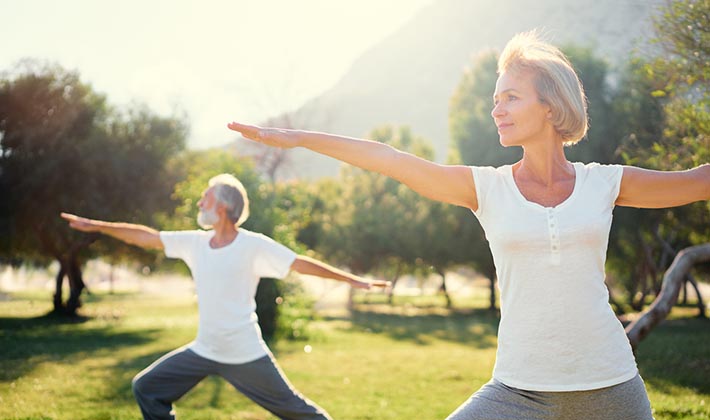
Yoga is the most popular type of balance exercise and is practiced by millions of people each day. Most people take yoga classes so that a professional instructor can help them improve their form and maximize the effectiveness of their work out. If you’re new to the world of yoga – or any balance exercises, for that matter – you should know that it’s dangerous to go alone. You should take the advice of a personal trainer or class instructor before venturing out on your own.
#3 What If You Can’t Lift Weights? Try These Instead
Weight training is one of the most important things you can do for yourself as you get older. But weight training gets harder to do as you age – especially if you didn’t do much of it when you were younger. If you’re intimidated by weight training, or if you want to weight train without the difficulty or dangers inherent in free weights, try some of these instead:
- Resistance bands – they give the resistance of a free weight without the risk of dropping a heavy weight on yourself and causing an injury
- Body weight – your body + gravity could be all the resistance you need when combined with calisthenics and compound exercises
- Underwater exercise – most gyms have pool-based exercise classes with specialty weights that you can use underwater; it’s easier on your joints and comes with a lower risk of injury
#4: Don’t Forget the Cardio!
Most personal trainers don’t recommend weight training every day. Try doing these exercises every other day, or even every couple of days depending on what your body can handle.
But that doesn’t mean you should sit on your butt and do nothing on your off days.
Instead, do some cardio on the days you aren’t weight training. Cardio is valuable because it helps improve cardiovascular health and improves blood flow to sore muscles, speeding recovery. Some of the most popular and the easiest cardio exercises you can do include:
- Walking
- Jogging
- Senior fitness classes
- Stationary cardio machines (bike, elliptical, treadmill, etc)
With any exercise, especially cardio, you should always keep safety in mind. Take a look at this list of safety tips for older adults who want to get more cardio into their exercise routine:
- Footwear: make sure you wear strong, supportive footwear and replace it about once every 6 months to avoid strains or balance issues
- Clothing: if you’re going for a walk or jog around the neighborhood, make sure you wear bright, reflective clothing so that drivers can see you coming
- The buddy system: if you go for a walk, jog, or hike out in the wilderness, it’s best to go with someone else in case you fall and injure yourself and need assistance
There you have it: compound exercises, balance exercises, weight training, and cardio – the four most important exercises every adult should be doing for optimal health and longevity! We hope the advice you’ve read so far has been helpful, and we hope to see you incorporate it into your new diet and exercise routine.



